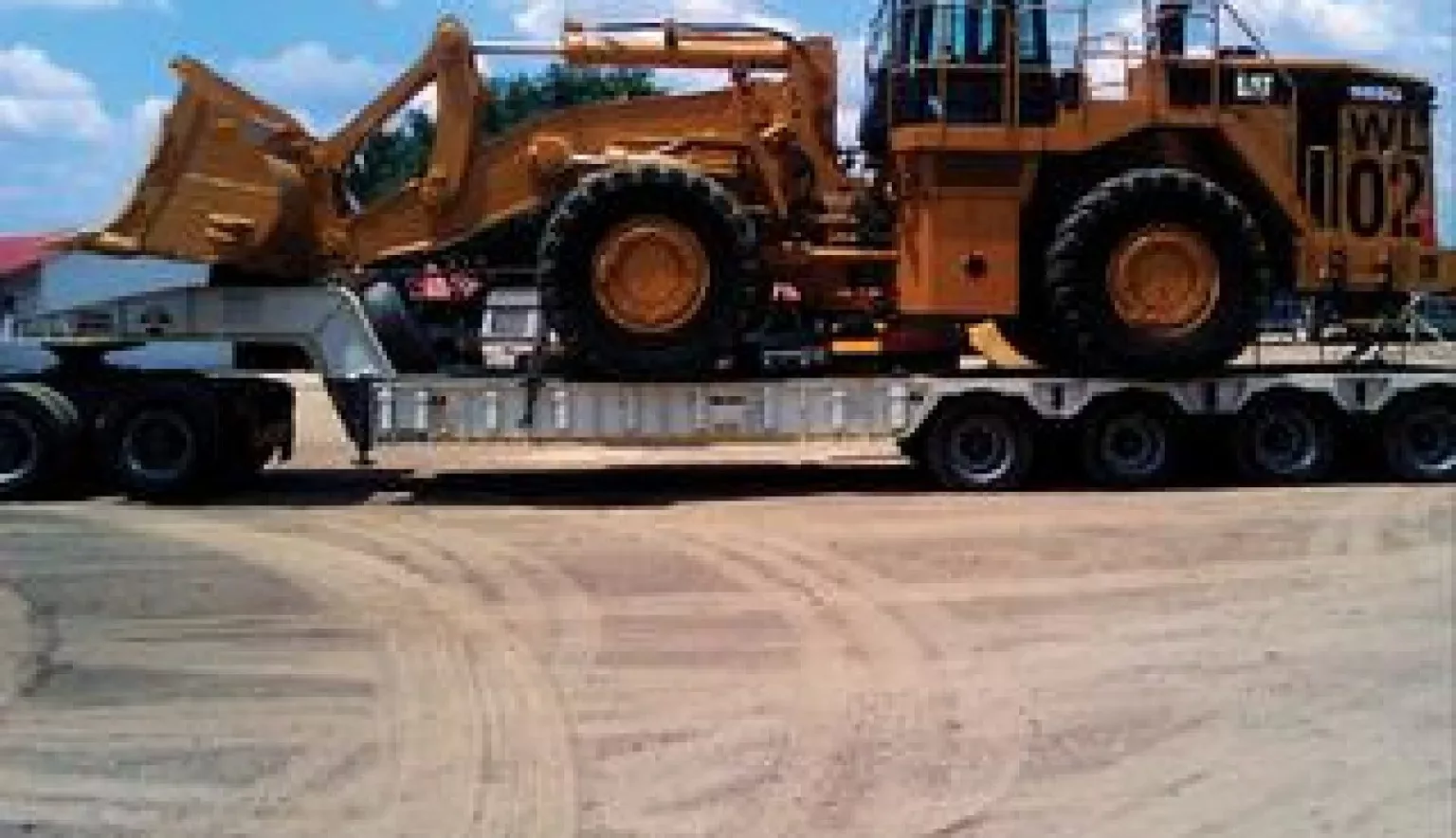As uranium and gold prices saw a decrease in 2013, Lewcor explain how they are overcoming the challenges of Namibian mining.
ONE HUNDRED PERCENT NAMIBIAN
Lewcor are a mining and civil services company, founded in the 1980s by mr C.J Lewis. As a family owned and run business, Africa outlook spoke to eldest son Helmuth Lewis, one of the Directors at Lewcor along with his younger brother.
The company started as a building contractor, evolving into a fully-fledged civil services company supplying products such as pipelines, building roads and other such services. The change to establishing themselves in the mining service came as a result of the amount of work they were able to successfully secure through civil services contracts, as Helmuth Lewis explains: “There were a significant number of construction contractors, whereas the civil services sector was more of a niche back then. moving into this sector was the ideal move for us.” Lewcor also laid almost 2000 km of fibre optic cable for the local telecom, and was a fore runner in the design and specs written with telecom to get Namibia up to standard in the optic technology. Additionally they built several large earth dams in rural areas where water was not easy to come by and when it comes to mining, they have their own fleet of mobile crushers and screening plants. All of this combined with its own fleet of small to large transport, means that Lewcor are able to offer a wide variety of expertise in the civil and mining industries.
Lewcor continue to keep a hand in the construction business as well as mining. “A significant number of these developments are residential houses we build to supply housing to our local mine workers. We have large scale property developments in a variety of towns and cities,” Lewis cites.
Boasting an impressive fleet size of around 300 pieces of large mining and construction equipment, Lewcor are the biggest privately-owned mining company operating in Namibia in terms of the amount of equipment they have available. they work with over 750 people, and 250 sub-contractors across their current project portfolio; which consists of several mines including drilling, blasting and bulk stripping at the Navachab gold mine, a manganese mine in the exploration stages and a new copper mine that is set to become one of the flagship mines in Namibia, opening at the end of April this year. Lewcor also have a transport division consisting of a fleet of highway trucks that transport materials and equipment to local mines. “Among our own portfolio of mines, we manage a site that mines semi-precious stones and selling to China. This is an open pit situated near Okahandja, mining a mineral blue chalcedony, which is one of the largest mines of its sort in the world. We provide full mining services at his site.”
CHOOSING THE RIGHT EQUIPMENT
Lewcor has three key focus areas: Firstly, to carry out quality works whilst maintaining reputable standards, secondly to have a staff of fully trained and qualified technicians and lastly, maintaining a high standard of machinery. It is the last point that Lewis drew our attention to: “we always ensure to give our workers the lightest equipment and best machinery in order to complete their work efficiently. This is what has got us to where we are now.”
Although limited in the brand choice for earthmoving and mining equipment in Namibia, the internationally recognised brands Atlas Copco and Caterpillar have local distribution networks, which is where most of Lewcor’s equipment comes from. “All our mining machines come from international sites such as America, India and Sweden. Atlas Copco and Caterpillar have a dealership here which is helpful. The decision to use these recognised brands is what stands us above several other civil service mining companies,” Lewis affirmed. Moreover, being a small company allows them to effectively maintain the machinery they have, making the mining process as productive as possible.
COMMODITY PRICE FLUCTUATION
Uranium and gold commodity prices saw a decrease in 2013 and this was one of Lewcor’s major challenges, coupled with the US dollar increase for the price of gold in Namibia as Lewis further explains: “This increase has meant we have been caught up in high operating costs. Both of these factors make it difficult to correct the price we charge for mining so that we make a good return.” the majority of mining sites in Namibia are uranium mines; however there is currently only one gold mine – with one other starting up – in the country that has, because of costs, been scaled down for the time being. “These issues aside, we have secured contracts for the next 3-5 years with the majority of our explorations. Our sale of semi-precious stones to the Chinese market remains a secure investment for the next 3 to 4 years,” adds Lewis.
MINING OPERATIONS CENTRE
When it comes to training, Lewcor have seen a skills shortage across the mining sector; and in 2013, the idea to build their own training centre was born. “As a third world country, we struggle to secure a very local workforce, but we strive to change this in the near future. We want Namibians who really know the mining sector and market well. As the demand for good operators isn’t available at the moment, we decided to build a training centre. We have already acquired accredited trainers and are in the process of construction,” Lewis remarks. The new centre in Namibia promises to improve the local workforce, whilst up-skilling the industry. MOTC will be a state of the art centre, with 20 to 30 people a month put through the training programme on a constant basis. With the help of the Government, this will solve a lot of our staff hiring issues.”
In addition to providing employment, Lewcor abide by their CSR in projects such as constructing around 40 residential houses for their workers in towns near to their sites of operation, soccer team sponsorships and by supplying Namibian schools with computers and air conditioning. “We are proud to be able to help smaller towns in any way we can. In turn, feeding back into the economy as the mine keeps the local town economies thriving,” Lewis exclaimed.
LONG TERM POSSIBILITIES
Due to the substantial size of Lewcor’s fleet, the company are best suited for the larger kinds of mining operations. “This plays a huge role in the criteria we look for when thinking of expanding, as we then have to seek out larger mining sites that may be further afield. Then, we have to get our equipment to these mines which can take over a year in some cases,” Lewis stated. Advantageously, most of the neighbouring countries to Namibia pay in US dollars, which as previously discussed is currently quite high against the Namibian dollar.
“Our long term plan may be looking into expanding into South Africa, Zambia, Zimbabwe and Botswana markets. In contrast, the training centre and Namibian projects will be our short term focus.” Lewcor hope these short term plans will place them in good stead to take on bigger projects and contracts in the long term.
With the physical presence of a management team at each site, Lewcor are able to track company strengths and weaknesses on a day to day basis. Furthermore, equipment is maintained to a high standard which improves the staff working environment and eliminates a significant number of issues at their sites of operation.





















